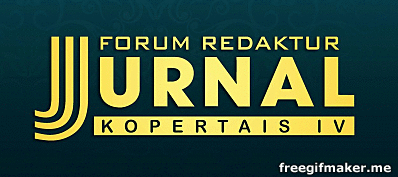Cognitive Justice in Islamic Education: Decolonizing Pedagogical Practices through Tarbawi Tafsir of QS. Al-Alaq: 1-5

DOI:
https://doi.org/10.32665/alulya.v10i2.4544Keywords:
Al-Alaq, Cognitive Justice, Decolonization, Epistemics, Tafsir TarbawiAbstract
This study examines the role of tafsir tarbawi in the epistemic decolonization of Islamic education through a critical analysis of QS. Al-‘Alaq: 1–5. The objective of this research is to deconstruct the colonization of knowledge systems rooted in modern educational paradigms and to accommodate cognitive justice by integrating Qur’anic values, local wisdom, and contemporary scientific knowledge, using QS. Al-‘Alaq: 1–5 as the analytical framework. Employing a qualitative approach with critical discourse analysis, this study explores classical and contemporary tafsir texts as well as academic literature to uncover the deeper meanings of these verses in relation to the decolonization of Islamic educational epistemology. The findings reveal that the verses of QS. Al-‘Alaq: 1–5 serve not only as a call to literacy but also as an imperative to critically examine and reflect on reality through a holistic tawhid-based lens. The study indicates that the tafsir tarbawi approach effectively challenges the dominance of Western epistemology and offers opportunities for curriculum reform and pedagogical methods that are more inclusive, interdisciplinary, and grounded in cognitive justice. The implications of this research support the development of optimized educational strategies through the use of information technology, educator training, and cross-disciplinary collaboration to establish an Islamic education system that is independent, just, and responsive to global challenges.
Downloads
References
Abduh, M., & Ridha, M. R. (1898). Tafsir Al Manar. Maktabah Al-Mishriyyah.
Adams, R. (2021). Can artificial intelligence be decolonized? Interdisciplinary Science Reviews, 46(1–2), 176–197. https://doi.org/10.1080/03080188.2020.1840225
Adib, M. A. (2022). Aktualisasi Nilai-Nilai Pendidikan Islam pada Surat Al-Alaq Ayat 1-5 dalam Pembelajaran Agama Islam. Islamic Review: Jurnal Riset Dan Kajian Keislaman, 11(1), 1–18. https://doi.org/10.35878/islamicreview.v11i1.351
Alwizar, Syafaruddin, Nurhasnawati, Darmawati, Istiqomah, Zatrahadi, M. F., & Ifdil. (2021). Analisis Systematic Literature Review Tafsir Tarbawi: Implementasi Tafsir Tarbawi pada Pendidikan Islam. JPPI (Jurnal Penelitian Pendidikan Indonesia), 7(4), 729–737.
Arizona, K., Sarjan, M., Rokhmat, J., Sucilestari, R., A, S., Mertha, I. G., Syamsuddin, & Syahidi, K. (2022). Human Existence and Meaning of Life: Alternative Philosophical Solutions To Multidimensional Educational Problems. Jurnal Tatsqif, 20(2), 111–124. https://doi.org/10.20414/jtq.v20i2.5148
Bahri, W. S. (2025). Integrating Naqli and Aqli Science in Islamic Education : Toward a Comprehensive Learning Model. J-PAI: Jurnal Pendidikan Agama Islam, 11(2), 82–96. https://doi.org/10.18860/jpai.v11i2.31447
Berglund, J., & Gent, B. (2019). Qur’anic education and non-confessional RE: an intercultural perspective. Intercultural Education, 30(3), 323–334. https://doi.org/10.1080/14675986.2018.1539305
Chanifah, N., Hanafi, Y., Mahfud, C., & Samsudin, A. (2021). Designing a spirituality-based Islamic education framework for young muslim generations: a case study from two Indonesian universities. Higher Education Pedagogies, 6(1), 195–211. https://doi.org/10.1080/23752696.2021.1960879
Coleman, W. D., & Dionisio, J. (2009). Globalization, collaborative research, and cognitive justice. Globalizations, 6(3), 389–403. https://doi.org/10.1080/14747730903142041
Davids, N. and Y. W. (2016). Ethical Dimensions of Muslim Education. Palgrave.
Eldin, A. A. T. S. (2015). A cognitive metaphorical analysis of selected verses in the glorius qu’ran. International Journal of Applied Linguistics and English Literature, 4(2), 193–198. https://doi.org/10.7575/aiac.ijalel.v.4n.2p.193
Fataar, A. (2018). Decolonising education in South Africa: Perspectives and debates. Educational Research for Social Change, 7(SpecialEdition), vi–ix.
Gearon, L., Kuusisto, A., Matemba, Y., Benjamin, S., Preez, P. Du, Koirikivi, P., & Simmonds, S. (2021). Decolonising the religious education curriculum. British Journal of Religious Education, 43(1), 1–8. https://doi.org/10.1080/01416200.2020.1819734
Khoirudin, A. (2017). Transformative-Critical Education Paradigm: Investigating the Influence of Paulo Freire and Moeslim Abdurrahman in Ikatan Pelajar Muhammadiyah (1998-2008). Iseedu, 1(1), 97–125.
Mignolo, W. D. (2007). Delinking: The rhetoric of modernity, the logic of coloniality and the grammar of de-coloniality. Cultural Studies, 21(2–3), 449–514. https://doi.org/10.1080/09502380601162647
Ntloedibe, F. N. (2025). Unmasking the Western canon: decolonization of the curriculum as an epistemological balance of knowledge systems. African Identities, 00(00), 1–17. https://doi.org/10.1080/14725843.2024.2444992
Nurdin, H. (2020). Problems and Crisis of Islamic Education Today and in The Future. International Journal of Asian Education, 1(1), 21–28. https://doi.org/10.46966/ijae.v1i1.17
Quijano, A. (2000). Coloniality of power and Eurocentrism in Latin America. International Sociology, 15(2), 215–232. https://doi.org/10.1177/0268580900015002005
Qutb, S. (1954). Fi Zhilalil Qur’an.
R’boul, H. (2021). Alternative theorizing of multicultural education: an Islamic perspective on interculturality and social justice. Journal for Multicultural Education, 15(2), 213–224. https://doi.org/10.1108/JME-07-2020-0073
Raihani. (2020). A model of Islamic teacher education for social justice in Indonesia a critical pedagogy perspective. Journal of Indonesian Islam, 14(1), 163–186. https://doi.org/10.15642/JIIS.2020.14.1.163-186
Sahed, N., Sumadi, E., & Rangkuti, S. S. (2018). Pendekatan Rasional-Religius Dalam Pendidikan Islam. Tarbawiyah Jurnal Ilmiah Pendidikan, 2(01), 54. https://doi.org/10.32332/tarbawiyah.v15i01.1138
Sahin, A. (2018). Critical issues in islamic education studies: Rethinking islamic and western liberal secular values of education. Religions, 9(11). https://doi.org/10.3390/rel9110335
Shahjahan, R. A., Estera, A. L., Surla, K. L., & Edwards, K. T. (2022). “Decolonizing” Curriculum and Pedagogy: A Comparative Review Across Disciplines and Global Higher Education Contexts. In Review of Educational Research (Vol. 92, Issue 1). https://doi.org/10.3102/00346543211042423
Sri Bulan, Yunus Abu Bakar, A. Z. F. (2017). Connecting Spiritual Rational Humanism: The Trend of Religious Moderation in the Modernization of Madrasah. Edukasia Islamika, 2(2), 172–190.
Subakat, R., Nasution, M. K., Ali, R., & Harnedi, J. (2022). Integrative purpose of Islamic Education: Semiotic Structural Analysis of Q.S. Al-Alaq 1-5. Edukasia : Jurnal Penelitian Pendidikan Islam, 17(1), 71. https://doi.org/10.21043/edukasia.v17i1.12922
Sulaiman, H., & Musthofa, F. A. (2023). Nilai-Nilai Edukatif Menurut Al- Qur ’ an Surat Al- ‘ Alaq 1 -5 ( Kajian Ilmu Pendidikan Islam ). Jurnal Masagi, 02(c), 1–8. https://doi.org/10.37968/masagi.v2i1.578
Tolchah, M., & Mu’ammar, M. A. (2019). Islamic Education In The Globalization Era Challenges Opportunities and Contribution of Islamic Education in Indonesia. Journal Humanities & Social Sciences Reviews, 7(4), 1031–1037.
Visvanathan, S. (2005). Knowledge, Justice, and Democracy. In Science and Citizens: Globalization and the challenge of engagement. Zed Book Ltd.
Downloads
Published
Issue
Section
License
Copyright (c) 2025 Khizbullah Al Mahdiyin, Moch. Tholchah

This work is licensed under a Creative Commons Attribution 4.0 International License.
 PDF Download: 164
PDF Download: 164












